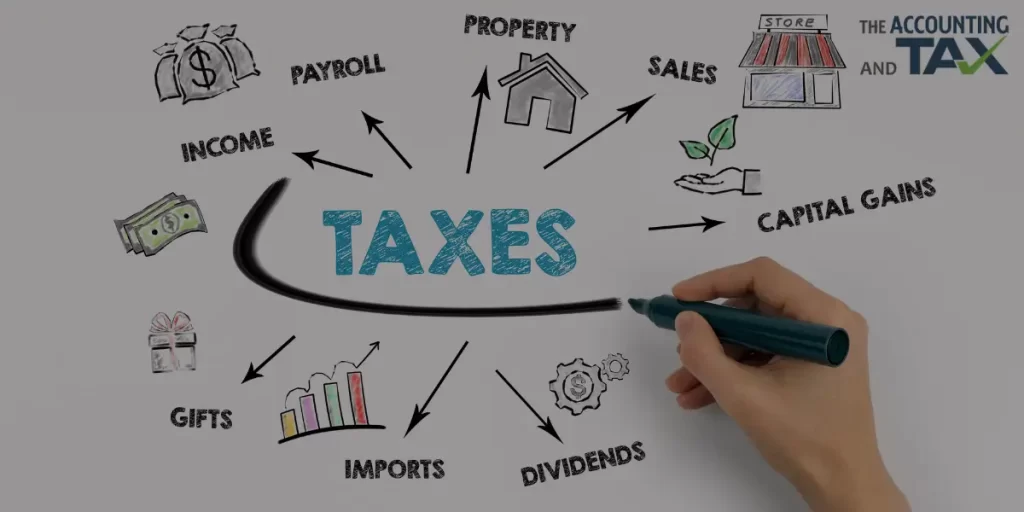Maximizing Tax Benefits for Your Small Business In Canada
In today’s competitive business landscape, every dollar counts. Maximizing tax benefits is not just about saving money; it’s about improving your cash flow, funding growth, and increasing your overall profitability. As a small business owner, understanding and utilizing tax-saving methods can make a huge difference in the long-term financial health of your business. The right tax strategies can help you legally minimize your tax burden, reinvest in your operations, and achieve your business goals. In this article, we will explore tax-saving tips, key tax deductions, and effective strategies to help you maximize your tax benefits, including ways to avoid capital gains tax, and tax-saving tips for small business owners.
Key Tax Advantages Available to Small Businesses
As a small business owner, you’re likely eligible for several tax advantages that can help reduce your tax obligations. Canada offers various tax breaks, credits, and deductions specifically designed to encourage entrepreneurship. From claiming business expenses to taking advantage of the Small Business Deduction (SBD), there are numerous ways for small businesses to benefit. Tax planning isn’t just about reducing what you owe today—it’s also about setting your business up for long-term financial success.
Tax Saving Tips for Small Business Owners
Here are some actionable tips that can help you maximize your tax savings and minimize your liabilities:
1. Claim All Eligible Business Expenses
One of the best ways to reduce your taxable income is to ensure that you’re claiming every allowable business expense. These can include:
- Office supplies
- Utilities and rent
- Employee wages
- Advertising and marketing
- Travel expenses
- Professional services (e.g., accounting, legal fees)
By keeping detailed records and receipts, you ensure you’re not leaving money on the table when it comes time to file your taxes.
2. Take Advantage of the Small Business Deduction
In Canada, small businesses that qualify for the Small Business Deduction can reduce their tax rate on the first $500,000 of active business income. This significantly lowers your tax burden, especially for businesses that are just starting or have relatively modest earnings.
This tax-saving method is available to Canadian-controlled private corporations (CCPCs). If you haven’t yet incorporated your business, it may be worth considering incorporation to take advantage of this lower corporate tax rate.
3. Consider Incorporating Your Business
Incorporation comes with numerous benefits. It’s one of the best ways to save tax for small business owners who are looking to scale their operations. Here are some key tax advantages of incorporation:
- Corporate tax rates are often lower than personal tax rates.
- You may have access to more tax-saving opportunities, such as income splitting with family members and contributing to retirement savings plans like a Corporate RRSP.
- Corporations can also defer taxes by leaving profits within the business instead of taking them as personal income.
While incorporating does come with additional administrative responsibilities, the tax advantages can make it worthwhile for businesses generating a substantial income.
4. Utilize Tax-Deferred Savings Plans
Setting up a Registered Retirement Savings Plan (RRSP) can significantly lower your taxable income. Contributions to an RRSP reduce the amount of income that is subject to taxation in the year you make the contribution. The funds within the RRSP grow tax-deferred until you withdraw them, typically at retirement when you may be in a lower tax bracket.
This strategy not only helps you save for retirement but also provides immediate tax relief.
5. Track and Deduct Home Office Expenses
If you run your small business from home, you may be eligible to claim a portion of your home expenses as business expenses. This includes:
- A percentage of rent or mortgage interest
- Utilities
- Office supplies and equipment
- Internet and phone bills
Keep in mind that you must use the space exclusively for business purposes to qualify for these deductions. Home office deductions can significantly reduce your taxable income and are often overlooked by many small business owners.
Key Tax Deductions and Credits for Small Businesses
Small businesses in Canada have access to several key deductions and credits that can reduce their tax liabilities. Some of the most notable ones include:
- Scientific Research and Experimental Development (SR&ED) Tax Incentive Program: If your business is involved in research and development, you could be eligible for significant tax credits through the SR&ED program.
- Apprenticeship Job Creation Tax Credit: If you hire apprentices, you can receive a tax credit to encourage skills development.
- Employee Health and Dental Benefits: Businesses that offer group health or dental benefits to their employees can deduct the premiums they pay.
Taking advantage of these deductions can make a big difference at tax time, so make sure to familiarize yourself with the full list of available tax-saving credits and deductions.
Tax-Saving Strategies for Small Business Owners
Beyond deductions and credits, there are other tax-saving methods that small business owners can use to minimize their liabilities. Here are some strategies to consider:
- Income Splitting: If you incorporate your business, income splitting can be an effective strategy. By paying dividends to family members in lower tax brackets, you can reduce your overall tax bill. This works well for family-run businesses where multiple family members are involved.
- Deferring Taxes: As a business owner, you may have the option to defer taxes by keeping profits in the business rather than taking them as personal income. This strategy can allow you to pay taxes at a later date, when you may be in a lower tax bracket.
- Tax-Efficient Investment Strategies: Investing profits in tax-efficient ways can also help minimize taxes. Consider contributing to tax-advantaged accounts like RRSPs or Tax-Free Savings Accounts (TFSAs) to shelter investment income from taxes.
Tax Saving Tips in Canada
Canadian small businesses have access to a wealth of tax-saving opportunities. In addition to the general tips above, here are a few Canada-specific strategies:
- Capital Cost Allowance (CCA): This allows businesses to claim depreciation on certain assets, like machinery or vehicles, over time. CCA can help reduce your taxable income and provide cash flow savings in the short term.
- GST/HST Input Tax Credits: If your business is registered for GST/HST, you can claim input tax credits on the GST/HST you paid for business expenses. This reduces the amount of GST/HST that you owe, which can be a significant saving.
- Research and Development (R&D) Incentives: If your business conducts R&D, you may be eligible for the Scientific Research and Experimental Development (SR&ED) tax credit, which can refund a significant portion of the costs associated with R&D.
For more details, you can refer to the Canada Revenue Agency (CRA) for updated tax information and guidance on available deductions and credits.
Plan Capital Gains Strategically
If you plan to sell assets, such as your business or real estate, it’s important to understand ways to avoid capital gains tax. Capital gains tax is charged on the profit from the sale of an asset, but there are strategies to minimize this tax:
- Lifetime Capital Gains Exemption (LCGE): This exemption allows individuals to exclude up to $913,630 (as of 2024) in capital gains on the sale of qualifying small business shares. This is a fantastic way to avoid paying capital gains tax on the sale of your business.
- Tax-Efficient Selling: Plan the sale of assets carefully. Work with a tax advisor to structure the sale in the most tax-efficient way. This might involve selling shares over time or setting up a trust to spread out the capital gains.
By carefully planning the sale of assets and using tax exemptions, you can minimize your capital gains tax liability significantly.
Conclusion
Maximizing tax benefits for your small business requires careful planning and execution. By implementing these tax-saving tips for small business owners, claiming eligible deductions, and using tax-saving strategies, you can reduce your overall tax burden and keep more of your profits. In Canada, taking advantage of tax-saving opportunities like the Small Business Deduction, capital cost allowance, and capital gains exemptions can help set your business up for financial success.
Ready to maximize your tax savings? Start applying these tax-saving tips today and watch your business thrive! For personalized advice, contact a tax professional The Accounting And Tax, and take your financial strategy to the next level.


